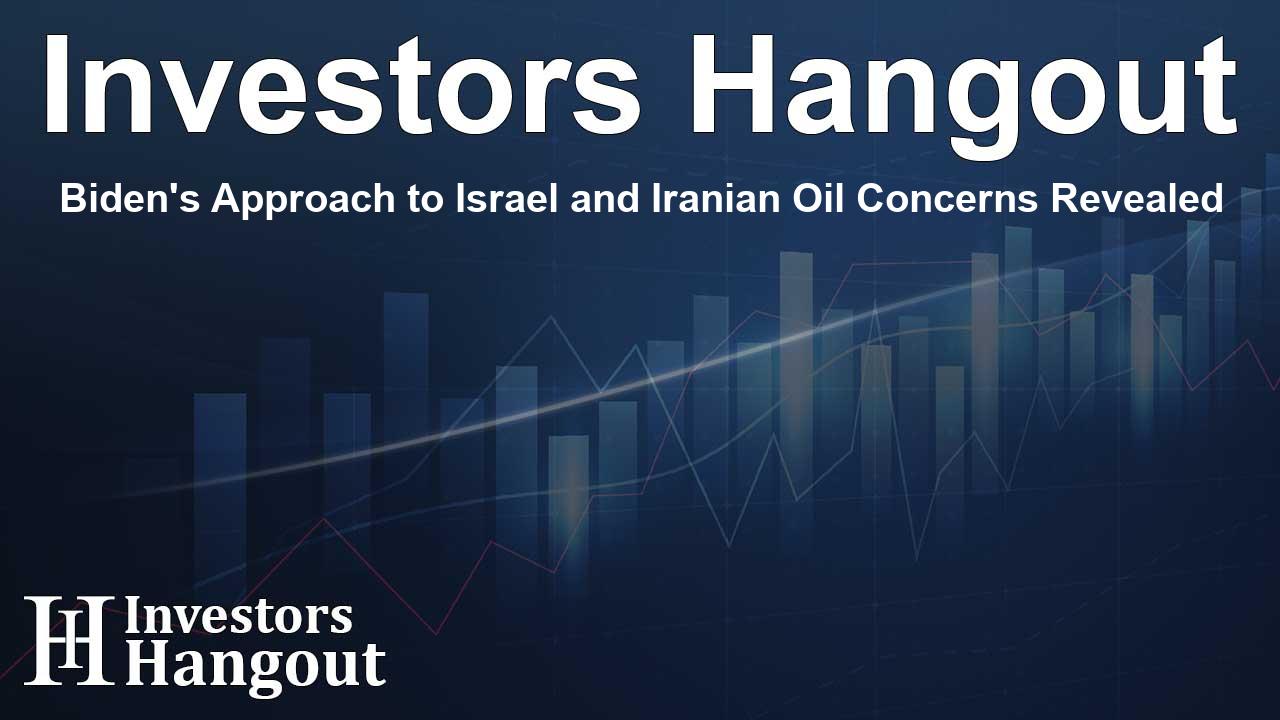Biden's Approach to Israel and Iranian Oil Concerns Revealed

Understanding Biden's Stance on Israel and Iran's Oil Facilities
In a recent discussion, President Joe Biden made it clear that he believes negotiation should not be a matter for public discourse. When questioned about whether he advised Israel against attacking Iran's oil facilities, he firmly stated, "I don't negotiate in public." This response encapsulates a strategic approach towards delicate international relations.
The Rising Tensions and Its Implications
Israel is currently deliberating its response to a ballistic missile attack from Tehran, which took place just days ago. Amid these tensions, the U.S. government has expressed its commitment to ensuring that Iran faces dire repercussions for its aggression. The political climate is charged, with the potential for these events to escalate further.
Impact on Global Oil Prices
During these discussions, Biden inadvertently triggered a spike in global oil prices by announcing that Washington was contemplating strikes on Iranian oil facilities. This comment raised eyebrows and highlighted how interconnected geopolitical events are with market reactions. U.S. officials later clarified that Israel has not yet made a decision regarding its response to Iran.
Recent U.S. Position on Israeli Actions
Furthering this dialogue, Biden addressed public concerns by emphasizing that the U.S. does not support any Israeli strikes on Iran's nuclear sites. His comments emphasize the administration's desire to avoid escalating conflict while managing the complex relationship with Israel.
Concern Over Oil Prices
When pressed about the potential rise in oil prices should Israel proceed with an attack on Iranian oil facilities, Biden offered an analogy, suggesting that external events, such as hurricanes, inevitably impact pricing dynamics. His uncertainty hinted at the unpredictable nature of the situation, both politically and economically.
Communication with Israeli Leadership
In the context of the ongoing crisis, Biden's communications with Israeli Prime Minister Benjamin Netanyahu have drawn attention. The President revealed that he had not been in contact with Netanyahu recently due to the lack of immediate actions, reflecting a strategic pause in diplomatic engagement.
The Broader Conflict Context
This scenario unfolds against the backdrop of a year marked by intense conflict between Israel and Hezbollah, which has resulted in significant loss of life and humanitarian crises in the region. Nearly 2,000 individuals have lost their lives in Lebanon due to recent hostilities.
Meanwhile, in Gaza, the situation is equally dire, with close to 42,000 fatalities reported and the majority of the 2.3 million residents displaced since a deadly attack by Hamas. The intertwined conflicts underscore the complex and often tragic nature of geopolitical struggles in the region.
The Challenges Ahead
As the situation develops, the challenge remains for leaders to navigate these turbulent waters carefully, balancing national interests with the broader implications for the people affected by these conflicts. The potential consequences of military actions on oil markets could further complicate the scenario.
Frequently Asked Questions
What did President Biden say about negotiating with Israel?
Biden stated that he does not negotiate in public, particularly regarding Israel's potential actions against Iran.
How did Biden's comments affect oil prices?
His remarks about discussing strikes on Iran's oil facilities led to a surge in global oil prices due to market reactions.
What is the current conflict in Lebanon related to?
Israel's military actions, particularly against Hezbollah, have resulted in high casualties and a humanitarian crisis in Lebanon due to ongoing violence.
What position does the U.S. hold regarding strikes on Iran's nuclear sites?
The U.S. does not support any Israeli strikes on Iran's nuclear sites according to Biden's statements.
What are the implications of the current U.S.-Israel relations?
The dynamics between the U.S. and Israel are crucial as they navigate tensions with Iran, which can heavily influence both regional stability and oil markets.
About Investors Hangout
Investors Hangout is a leading online stock forum for financial discussion and learning, offering a wide range of free tools and resources. It draws in traders of all levels, who exchange market knowledge, investigate trading tactics, and keep an eye on industry developments in real time. Featuring financial articles, stock message boards, quotes, charts, company profiles, and live news updates. Through cooperative learning and a wealth of informational resources, it helps users from novices creating their first portfolios to experts honing their techniques. Join Investors Hangout today: https://investorshangout.com/
Disclaimer: The content of this article is solely for general informational purposes only; it does not represent legal, financial, or investment advice. Investors Hangout does not offer financial advice; the author is not a licensed financial advisor. Consult a qualified advisor before making any financial or investment decisions based on this article. The author's interpretation of publicly available data shapes the opinions presented here; as a result, they should not be taken as advice to purchase, sell, or hold any securities mentioned or any other investments. The author does not guarantee the accuracy, completeness, or timeliness of any material, providing it "as is." Information and market conditions may change; past performance is not indicative of future outcomes. If any of the material offered here is inaccurate, please contact us for corrections.